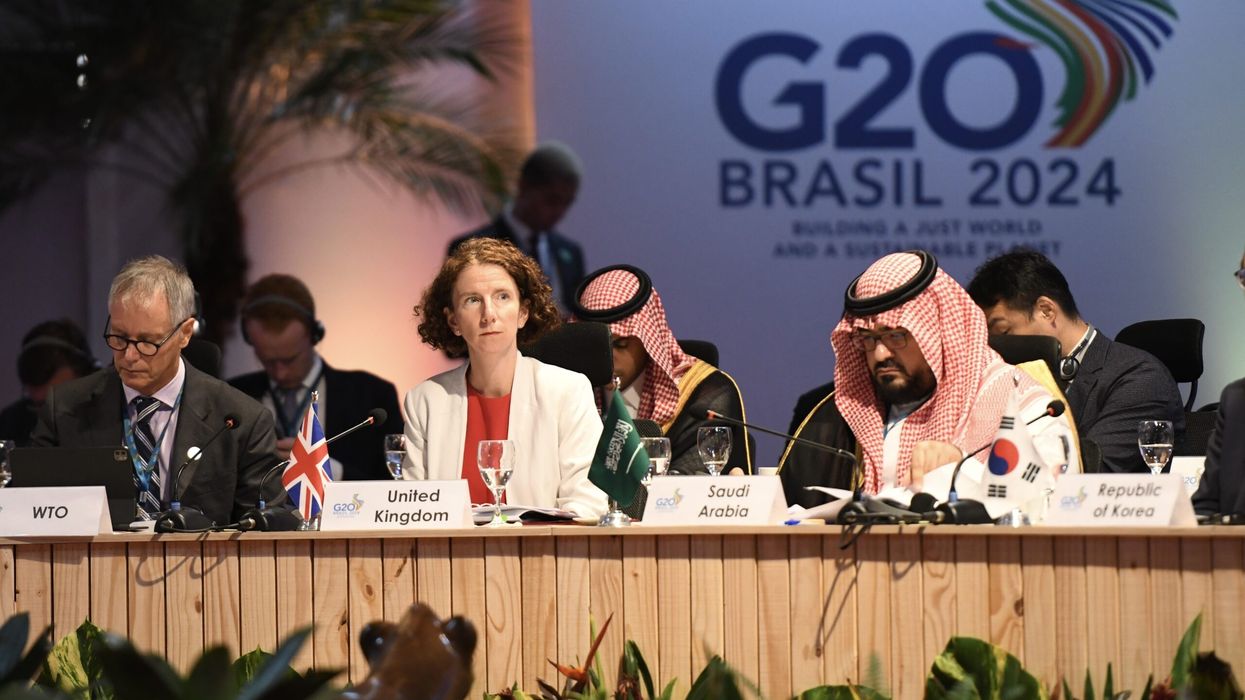Extreme hunger. Desperate poverty. Shocking inequality. In 2024, these problems should be consigned to history. Sadly, they are continuing to fester across much of the world today.
This week, most of the world’s biggest countries came together at the G20 Development Ministers’ meeting in Brazil to consider how to tackle them. Given the scale of the global challenges we face, there is no time to waste.
As the UK government’s new minister for international development, it has been my privilege to represent our country at these important talks.
This was also my first overseas trip since the new Labour government was elected on a mandate for change. Part of that change will be the restoration of our development reputation on the global stage.
The G20 presented an early opportunity to reconnect Britain on the global stage by showing that we intend to work with – not against – our international partners to tackle global challenges like the climate crisis, regional conflicts, extreme hunger and desperate poverty.
Sadly, none of us are strangers to these crises – we have all seen the desperate images of suffering and destruction on our social media feeds and TV screens. I know this can feel distant or unrelated to our day-to-day lives – something that happens somewhere else – but we cannot afford to think that way. Because the fact is these events aren’t just somebody else’s problem.
Of course, there is a moral reason why the UK should – indeed must – help people trapped in crisis and conflict. But it is also in our own interests to do so, and I want to explain why.
Global stability and prosperity are good for us all, helping deliver stronger trade and economic growth, boosting jobs and opportunity both at home and abroad.
It also drives down migration, helping to undermine the business model of the criminal gangs who are profiteering from human misery in the Channel and across Europe.
So how do the UK and our international partners deliver the stability and growth the world urgently needs?
First, by looking beyond the quick fix and addressing the root causes of global problems, rather than simply dealing with the symptoms. A modern approach to international development must be rooted in a long-term problem-solving approach.
Second, we must tackle unsustainable debt and unlock the finance needed to make a real difference to cutting carbon emissions and reducing the impacts of the climate and nature crisis. As a global financial centre, the UK can be an international leader in this space, and I intend to harness that potential in the years to come.
Third, we must do everything we can to prevent the conflicts that drive people from their homes and into hunger and poverty. That’s where development and diplomacy overlap, and I’m pleased that the UK is leading the way in deploying our diplomatic and development expertise to tackle global conflicts.
Fourth, we need to work in genuine partnership with countries in the Global South so that we are supporting local solutions to problems, rather than suggesting we alone know best how to make things right.
That’s why I approached the meeting in Brazil as a genuine partnership of equals, learning from each other so that we can support sustainable economic growth that delivers opportunity – and hope – to young, growing populations.
Finally, as the minister for international development and women and equalities, I am determined to empower women and girls so that they too can benefit from good education, decent healthcare and economic opportunity.
Respect. Partnership. Common Interests. These are the values I took to the G20 this week, as I start work on our mission to create a world free from poverty, on a liveable planet.
Change begins now.
(Anneliese Dodds is the minister of state at the Foreign, Commonwealth and Development Office and for women and equalities)




